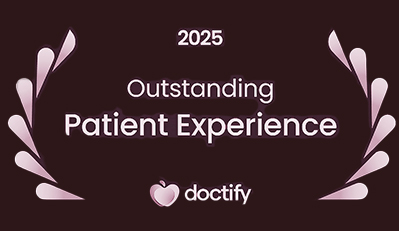
Is lens replacement the same as cataract surgery?
You’ve probably heard of cataract surgery. But maybe you’ve also come across the term lens replacement surgery—and wondered if they’re the same thing.
The short answer? They’re nearly identical procedures. The difference lies in why they’re done and when.
Let’s break it down.
What is cataract surgery?
Cataract surgery is performed when the eye’s natural lens becomes cloudy. This cloudiness is called a cataract. Cataracts tend to develop with age and can make your vision look blurry, hazy, or dim.
During cataract surgery, the cloudy natural lens is removed and replaced with a clear artificial lens, called an intraocular lens (IOL). This restores clear vision.
It’s one of the most common and successful surgeries in the world. And it’s typically done on an outpatient basis, meaning you go home the same day.
What is lens replacement surgery?
Lens replacement surgery—also called refractive lens exchange (RLE) or clear lens extraction—uses the same surgical technique as cataract surgery. The main difference? Your natural lens is still clear.
Instead of waiting for a cataract to develop, lens replacement is done earlier. The goal is to correct your vision and reduce or eliminate the need for glasses or contact lenses.
So, while the surgical steps are the same, the purpose is different.
Why would someone choose lens replacement?
As we get older—usually after 40 or 45—our near vision starts to decline. This is called presbyopia, and it’s a normal part of ageing.
Most people reach for reading glasses. Some get by with varifocals. But others want a more permanent solution. That’s where lens replacement surgery comes in.
It can:
- Correct long- or short-sightedness
- Reduce or eliminate reading glasses
- Treat astigmatism
- Prevent cataracts from developing in the future
It’s especially helpful if you’re not suitable for laser vision correction like LASIK or PRK.
So… are they the same thing?
Technically, yes. Both procedures involve removing the natural lens and inserting an IOL.
Functionally, no. Cataract surgery treats an existing problem—cloudy vision caused by cataracts. Lens replacement is done proactively to improve your vision before cataracts appear.
Think of it this way:
- Cataract surgery is medically necessary when vision gets cloudy.
- Lens replacement is elective and vision-enhancing.
Are the lenses the same?
The artificial lenses used in both surgeries are called intraocular lenses (IOLs). But in lens replacement, patients often opt for premium lenses that provide more flexibility.
Types of IOLs include:
- Monofocal lenses – sharp distance vision (reading glasses still needed)
- Multifocal or trifocal lenses – clear vision at near, far, and in between
- Toric lenses – correct astigmatism
- EDOF lenses – smooth vision over a range of distances
In cataract surgery (especially through the NHS), monofocal lenses are more commonly used. In private lens replacement, there’s greater freedom to tailor the lens to your lifestyle.
Is the recovery the same?
Yes. Recovery time is similar for both procedures.
Most people notice improvement in their vision within a few days. You’ll use prescribed eye drops for a few weeks and come back for check-ups. Full healing can take up to 4-6 weeks, but most daily activities can be resumed much sooner.
Who is lens replacement for?
Lens replacement surgery is ideal for people who:
- Are over 45
- Are struggling with reading glasses or varifocals
- Want to reduce or eliminate dependence on glasses
- Are not suitable for laser vision correction
- Want to prevent cataracts before they start
Which one do I need?
If you’ve already been diagnosed with cataracts that affect your vision, then cataract surgery is the right path.
If you want to fix your vision and don’t want to wait for cataracts to form, lens replacement might be the smarter option.
The best way to find out? Take our suitability self-test. It’s quick, easy, and can help guide your next step.
Find out if you are suitable for vision correction
Not everyone is eligible for vision correction surgery.
Find out if you could benefit from this life changing surgery by taking the quick self-suitability quiz below:




